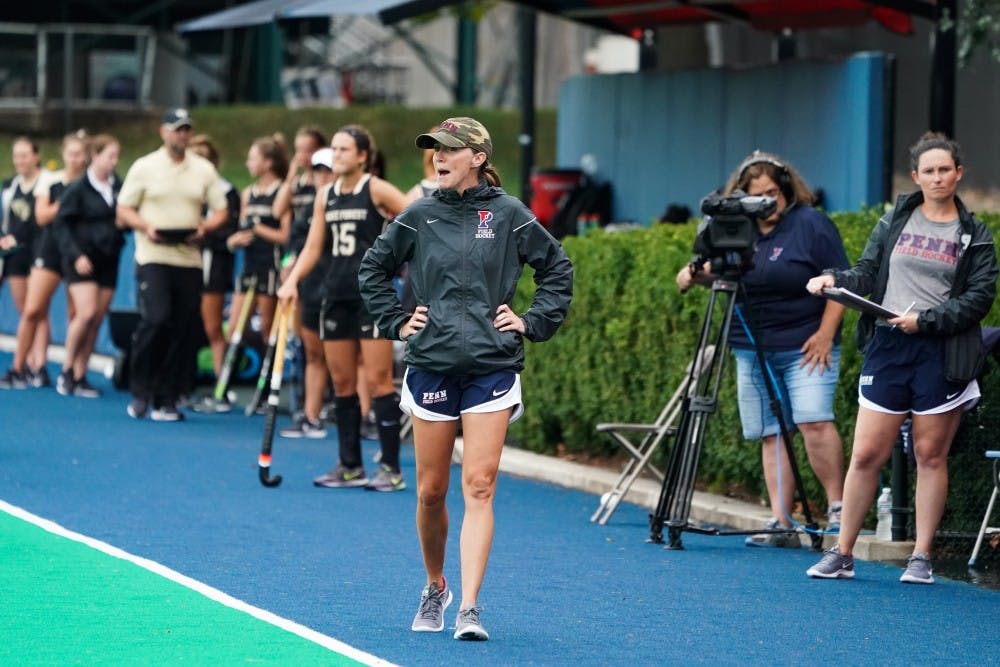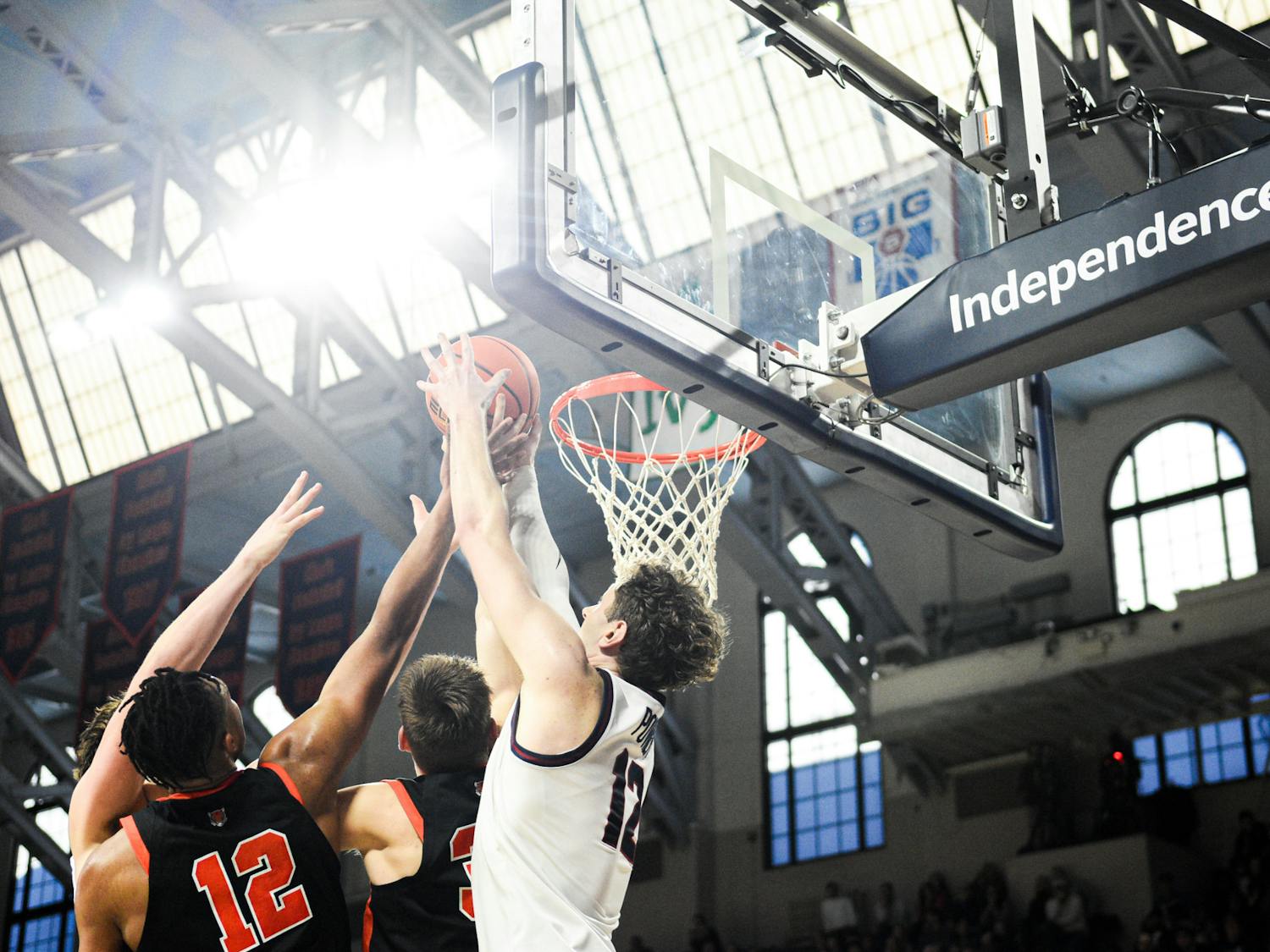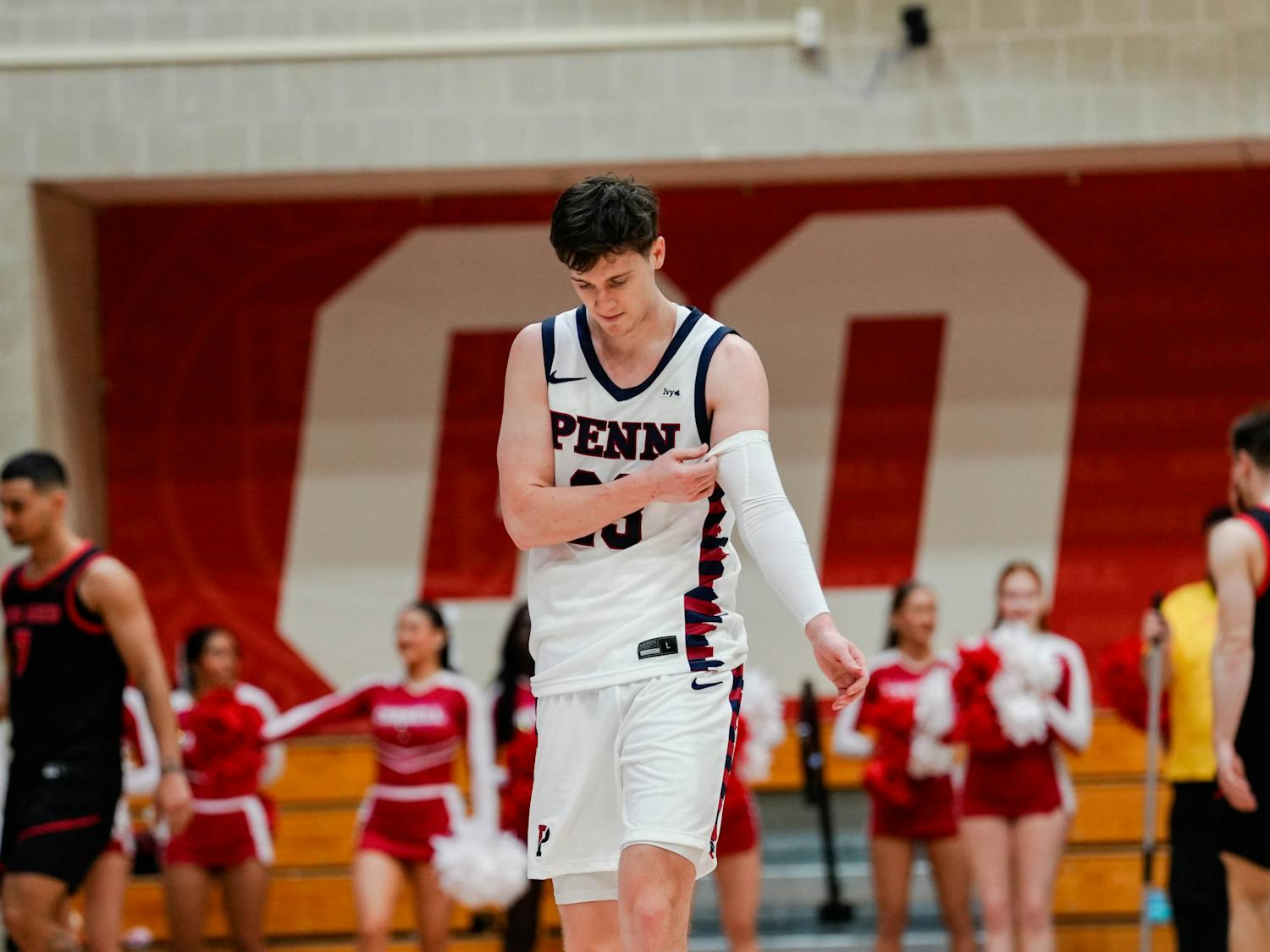To build a program from nothing to something, Penn field hockey coach Colleen Fink has used the creed of another local franchise: trust the process.
Like their NBA counterpart, the Quakers haven’t completed the process of a league championship quite yet. But one look at the Red and Blue’s schedules over the past few years shows that Fink’s program is on its way there — and it isn't afraid to take anyone on to prove it.
In two of the past three seasons, Penn has seen the defending NCAA champion on its slate. In both 2017 and 2018, the team scheduled six foes that made the prior year’s NCAA Tournament.
This year's slate is the most difficult yet. Eight of this year’s 17 opponents were ranked in the top 20 of the Preseason NFHCA Coaches’ Poll, including four in the top 11. And this trend shows no sign of stopping any time soon.
“[With] my loyalty to the City of Brotherly Love, I think we’ll always play a good City Six schedule no matter what. But outside of that, we definitely want our non-conference schedule to be one of the best,” Fink, a Saint Joseph’s alum, said. “We want a strong RPI to potentially get an at-large bid into the postseason, but also with the Ivy League being the third-strongest conference in the sport, those teams will prepare us for those tough conference games.”
Unfortunately for Penn, part of the reasoning behind such brave scheduling comes from learning about its importance the hard way.
Back in 2015, the Quakers had by far their most successful season since Fink took over, finishing 13-3 overall. But Penn’s only top-20 opponent all season was Princeton, who beat the Quakers in overtime to determine the conference’s automatic NCAA bid.
Considering the team’s weak schedule, the selection committee left Penn out of the postseason.
RELATED:
Penn field hockey splits weekend against Wake Forest and UNC
Upset Special: Penn field hockey takes down No. 10 Syracuse in historic weekend sweep
“It was highly influential [in scheduling tougher]. That was a really competitive team that could’ve made it into the postseason, but we were probably two or three teams out. So that’s definitely a motivator,” Fink said. “But I’m also a firm believer that you can’t skip steps. You can’t go from when I got here, when we were 3-13, to all of a sudden scheduling opponents that are all top-10 teams, without building any level of culture or confidence. We had to go through that process to get to where we are today.”
Ever since Penn’s heartbreak in 2015, the team has been facing powerhouses like Syracuse, UNC, and Delaware annually. Some might back down from such competition, but the Quakers would have it no other way.
“I think it really gets us hyped, because it’s not every day you get to play a top-five or top-10 team, so to try to knock them off is a great opportunity,” junior captain and midfielder Alexa Schneck said. “It definitely shows how much we’ve grown as a program.”
And the best news for Penn is that the Quakers can’t just compete with these juggernauts — when playing at their best, they can win, too.
October 2017 saw arguably the biggest non-conference win this century for Penn, as the Quakers stunned then-No. 10 Syracuse, 3-2, for the first top-10 win of Fink’s career. Proving it was no fluke, Penn upset then-No. 14 Wake Forest, 1-0, in the 2018 season opener.
“That was a great boost of our confidence [to beat Syracuse],” junior goalie Ava Rosati said. “It’s really exciting to know that, even though we always knew we were capable of beating a team like that, having that experience first-hand was really great.”
Of course, Penn’s attempts to take down field hockey’s Goliaths can’t go as planned every time. For every upset of Syracuse, there’s a game like Penn’s 8-0 loss to then-No. 2 UNC earlier this month, which was the Red and Blue’s biggest margin of defeat in four years.
But even when Penn gets run off the field, its coaches and players are rational enough to understand the value in it.
“Playing easier games early on is nice because you can get some wins, but playing harder games is preparing you more for conference games, which is what really matters,” senior captain and defender Paige Meily said. “We don’t ever expect to lose those games; we always go in with the optimism that we can win. But I also think playing a tough game can have more value than getting a blowout win.”
The ways that scheduling such strong foes can help the current Penn field hockey team, win or lose, are relatively obvious.
But just as much as the current generation of players can benefit, Penn field hockey can also make its next generation of athletes even stronger. And so the cycle continues, with better recruits and better competition mutually feeding into one another.
“It helps with recruiting, because everyone wants to beat that top team,” Meily said. “When I was in high school, Penn wasn’t as good as it is now, and I don’t think I would’ve ever imagined that I would be part of a team that beat Syracuse or Wake."
Overall, it’s clear that Penn field hockey is in a new era. Gone are the days of finishing 1-6 in the Ivy League, gone are the days of having to share a field with football and lacrosse, and gone are the days of shying away from tough competition. Fink’s program is aiming for the sky, and not afraid to take falls from anyone on its path.









